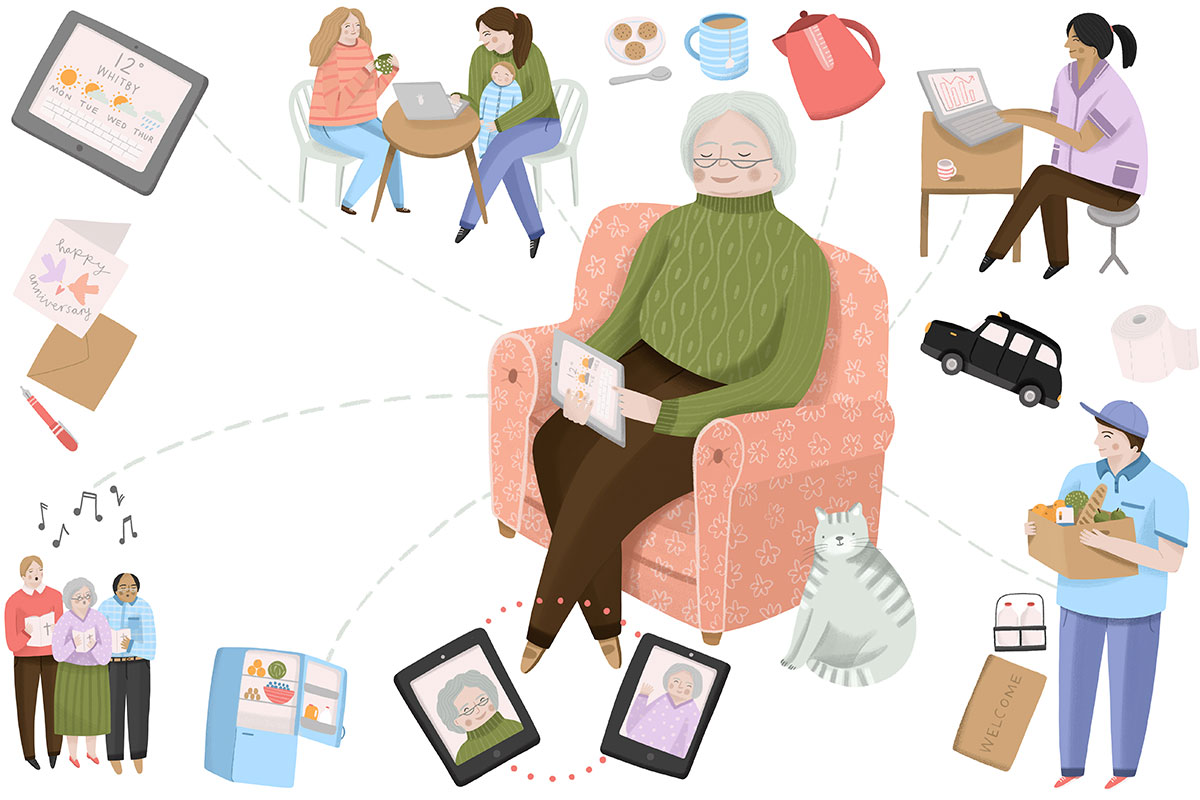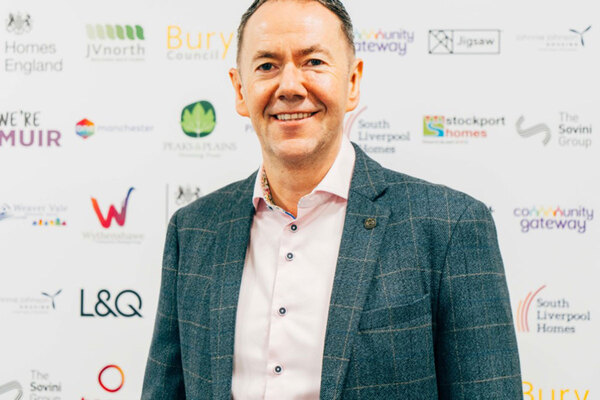You are viewing 1 of your 1 free articles
Housing associations see the impact of our broken care system every day
The lack of a plan for social care is affecting recruitment, warns Jane Ashcroft
“Nothing has changed.”
Back in the 2017 election campaign, Theresa May used those words repeatedly to deny having done a U-turn on social care.
Ms May promised to consult on an “absolute limit” on the amount people have to pay for their care costs after the Conservative manifesto had omitted explicit mention of a cap.
There were high hopes that the Social Care Green Paper promised this summer would spell out how such a cap might work.
Those hopes were dashed, once again, when health and social care secretary Jeremy Hunt announced that the green paper wouldn’t appear until the autumn.
So, more than a year on, we’re still waiting to see proposals to fix a care system which the Conservative manifesto described as “not working for the hundreds of thousands currently not getting the dignified and careful attention they deserve”.
“Tighter eligibility criteria for care and ever more stretched local authority funding mean older people are more likely to live in housing no longer suited to their needs.”
Successive governments, of a variety of hues, have ducked the issue for decades. And the impact is not only being seen by care providers.
Both mainstream and specialist housing providers such as Anchor see the impact of the broken care system every day.
Tighter eligibility criteria for care and ever more stretched local authority funding mean older people are more likely to live in housing no longer suited to their needs.
According to the Institute for Fiscal Studies, adult social care spending has fallen by 9% per person since 2009/10, with cuts varying around the country but tending to be larger in more deprived areas.
Housing associations working in some of the most deprived areas will have growing numbers of older, vulnerable people living in their properties without the right levels of support.
In the grand scheme of things, a couple of months’ delay to the Social Care Green Paper is not the worst thing to hit the sector.
Compare it with the time that has passed since Labour’s manifesto commitment back in 1997 to establish a Royal Commission on Long-Term Care for the Elderly, then subsequent rejection in 1999 of the commission’s proposal of free personal care).
If anything has changed since then, it’s the rhetoric.
More so than ever before, there is cross-party recognition of the interconnectedness of housing, health and care.
In announcing the delay to the green paper, Mr Hunt said it was to fit with the timing of the NHS Plan. “The NHS and social care are two sides of the same coin,” he said. “It’s not possible to have a plan for one sector without having a plan for the other.”
Similarly, in March, he talked of the role of housing “including how we can replicate the very best models that combine a home environment with quality care and how we can better support people through well-designed aids and adaptations”.
Retirement housing and extra care schemes, just like care homes, can play a hugely important role in enabling people to age well.
Technology will play a growing role but people will always remain central. Tragically, though, the lack of a plan for social care is making it harder to recruit great people.
That’s why Anchor, Care England and United for All Ages joined forces recently to warn Mr Hunt of an impending workforce crisis and the dire need to improve the public perception of social care.
In a joint letter, we urged the government to demonstrate that it values social care and improve the perception of the sector, so as to avoid the predicted shortfall of up to 1.1 million people by 2037.
New research commissioned by Anchor has revealed that 78% of people say they would not like to begin a career in adult social care, and 71% of parents would not encourage their children to think of it as a career worth pursuing. More than a fifth (22%) of people say the work is not valued by government, while 67% think a career in social care is undervalued by society.
“It’s important to remember that in the decades politicians have spent failing to get to grips with reforming the system, dedicated, hard-working and passionate people have carried on carrying on.”
One of the perennial issues is the huge lack of men: they make up just 18% of the workforce and a staggering 85% of men said they wouldn’t consider a career in the sector.
A change to the funding regime is crucial. But so too is simple recognition of the great opportunities that exist to really make a difference. A total of 83% of Anchor’s colleagues say their jobs offer personal fulfilment – 7% higher than the average for UK organisations.
When the NHS turns 70 on 5 July, there will be justifiable praise for the dedicated people who work in it. But, as Mr Hunt rightly says, health and social care are two sides of the same coin.
It’s important to remember that in the decades politicians have spent failing to get to grips with reforming the system, dedicated, hard-working and passionate people have carried on carrying on.
So as well as celebrating the great people in the NHS, let’s also remember to thank those working in specialist supported housing, sheltered housing, and extra care housing; and those providing residential and domiciliary care.
At the start of this year, Mr Hunt tweeted: “How we treat the elderly is the litmus test of a civilised society.”
Nothing has changed.
Jane Ashcroft, chief executive, Anchor












